1973 mayoral election in Cleveland, Ohio
| |||||||||||||||||
| |||||||||||||||||
| |||||||||||||||||
The Cleveland mayoral election of 1973 saw the reelection of Ralph Perk.
Contents
This was the first Cleveland mayoral election to use a nonpartisan system. [1]
| |||||||||||||||||
| |||||||||||||||||
| |||||||||||||||||
| Elections in Ohio |
|---|
 |
The Cleveland mayoral election of 1973 saw the reelection of Ralph Perk.
This was the first Cleveland mayoral election to use a nonpartisan system. [1]
| Candidate | Votes | % | |
|---|---|---|---|
| Ralph Perk (incumbent) | 56,560 | 54.92 | |
| James M. Carney | 44,459 | 43.17 | |
| Robbie Scherr | 1,126 | 1.09 | |
| Joseph Pirincin | 838 | 0.81 | |
| Total votes | 102,983 | 100 | |
On October 11, James M. Carney withdrew from the race, citing "personal" reasons. [2] Carney's campaign committee selected then-City Council Clerk Mercedes Cotner to replace him on the ballot. [5]
| Candidate | Votes | % | |
|---|---|---|---|
| Ralph Perk (incumbent) | 90,350 | 66.62 | |
| Mercedes Cotner | 45,267 | 33.38 | |
| Total votes | 135,617 | 100 | |

George Victor Voinovich was an American politician who served as a United States senator from Ohio from 1999 to 2011, the 65th governor of Ohio from 1991 to 1998 and the 54th mayor of Cleveland from 1980 to 1989, the last Republican to serve in that office.

The Conservative Party of New York State is an American political party founded in 1962 following conservative dissatisfaction with the Republican Party in New York. Running on the Conservative Party line, James L. Buckley won election to the U.S. Senate in 1970 and served for one term. Since 2010, the party has held "Row C" on New York ballots—the third-place ballot position, directly below the Democratic and Republican parties—because it received the third-highest number of votes of any political party in the 2010, 2014 and 2018 New York gubernatorial elections. The party is known for its strategy of attempting to influence the Republican Party in a more conservative direction.
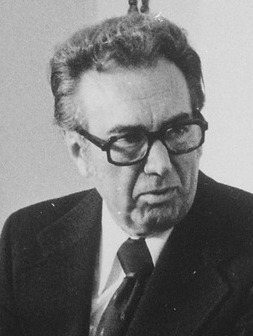
Ralph Joseph Perk was an American politician of the Republican Party who served as the 52nd mayor of Cleveland, Ohio.

The 1974 United States Senate elections were held on November 4, with the 34 seats of Class 3 contested in regular elections. They occurred in the wake of the Watergate scandal, Richard M. Nixon's resignation from the presidency, and Gerald Ford's subsequent pardon of Nixon. Economic issues, specifically inflation and stagnation, were also a factor that contributed to Republican losses. As an immediate result of the November 1974 elections, Democrats made a net gain of three seats from the Republicans, as they defeated Republican incumbents in Colorado and Kentucky and picked up open seats in Florida and Vermont, while Republicans won the open seat in Nevada. Following the elections, at the beginning of the 94th U.S. Congress, the Democratic caucus controlled 61 seats, and the Republican caucus controlled 38 seats.

The 1970 United States Senate elections was an election for the United States Senate. It took place on November 3, with the 33 seats of Class 1 contested in regular elections. Special elections were also held to fill vacancies. These races occurred in the middle of Richard Nixon's first term as president. The Democrats lost a net of three seats, while the Republicans and the Conservative Party of New York picked up one net seat each, and former Democrat Harry F. Byrd Jr. was re-elected as an independent.
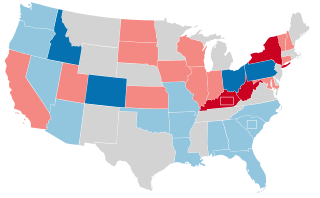
The 1956 United States Senate elections were elections for the United States Senate that coincided with the re-election of President Dwight D. Eisenhower. The 32 seats of Class 3 were contested in regular elections, and three special elections were held to fill vacancies. Although Democrats gained two seats in regular elections, the Republicans gained two seats in special elections, leaving the party balance of the chamber unchanged.

Cleve Andrew Pulley, better known as Andrew Pulley, is an American former politician who ran as Socialist Workers Party (SWP) nominee for Vice President of the United States in 1972 and one of three nominees the party put forth for President of the United States in 1980.
Alyson Kennedy is an American activist and member of the Socialist Workers Party (SWP). She was a candidate in the 2019 Dallas mayoral election. She was the SWP's nominee for Vice President in the 2008 United States presidential election, President in the 2016 United States presidential election as well as their nominee for president in 2020.
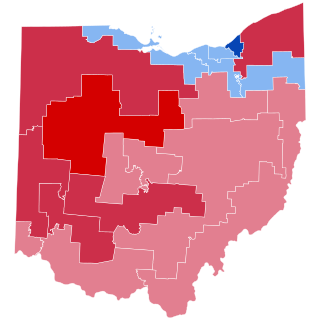
The 2010 congressional elections in Ohio was held on November 2, 2010. Ohio had eighteen seats in the United States House of Representatives, and all eighteen incumbent Representatives were seeking re-election in 2010. The election was held on the same day as many other Ohio elections, and the same day as House of Representatives elections in other states.

The Chicago mayoral election of 1989 saw Democratic nominee Richard M. Daley win election to the remainder of an unexpired mayoral term with a 14% margin of victory. This marked a return for the Daley family to the office of mayor. Daley was elected over Alderman Timothy Evans, the nominee of the newly formed Harold Washington Party, and the Republican nominee Ed Vrdolyak.

The Chicago mayoral election of 1983 was first the primary on February 22, 1983, which was followed by the general on April 12, 1983. The election saw the election of Chicago's first African-American mayor, Harold Washington. Incumbent Mayor Jane Byrne, who had served since April 16, 1979 had lost renomination in the Democratic primary in a three-way race between herself, then–Congressman Washington, and then–Illinois State Attorney Richard M. Daley in February 1983. Washington would face off against Republican nominee Bernard Epton, winning with a 3.7% lead over Epton in the general election.

The 1972 United States Senate election in Louisiana was held on November 9, 1972.
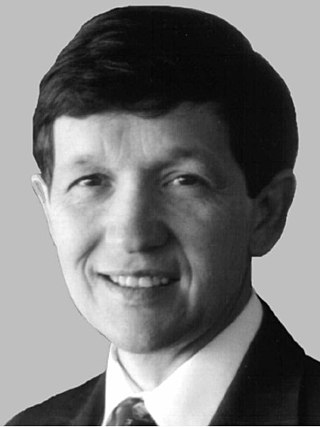
The 1977 Cleveland mayoral election took place on November 8, 1977, to elect the Mayor of Cleveland, Ohio. The election was won by Dennis Kucinich. The election was officially nonpartisan, with the top two candidates from the October 4 primary advancing to the general election.

The 1979 Cleveland mayoral election took place on November 6, 1979, to elect the Mayor of Cleveland, Ohio. George Voinovich defeated incumbent mayor Dennis Kucinich. The election was officially nonpartisan, with the top two candidates from the October 2 primary advancing to the general election.
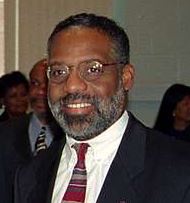
The 1989 Cleveland mayoral election took place on November 7, 1989, to elect the Mayor of Cleveland, Ohio. The election was officially nonpartisan, with the top two candidates from the October 3 primary advancing to the general election.

The 1975 Cleveland mayoral election took place on November 4, 1975, to elect the Mayor of Cleveland, Ohio. Ralph Perk was reelected to a second consecutive term. The election was officially nonpartisan, with the top two candidates from the September 30 primary advancing to the general election.

The Cleveland mayoral election of 1971 saw the election of Ralph Perk.

The 1972 New Hampshire gubernatorial election was held on November 7, 1972.

The 1970 New Hampshire gubernatorial election was held on November 3, 1970.

Elections are held in Syracuse, New York to election the city's mayor. Currently, these elections are regularly scheduled to be held once every four years, with the elections taking place in the off-year immediately after United States presidential election years.